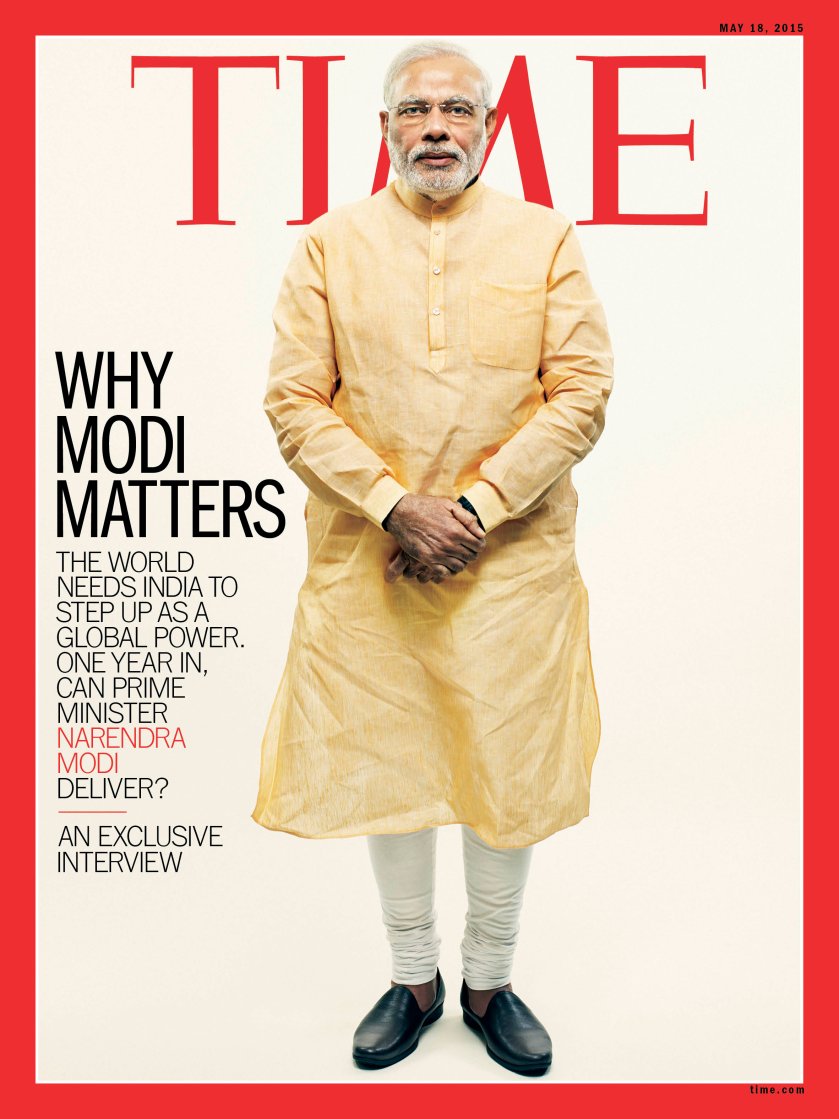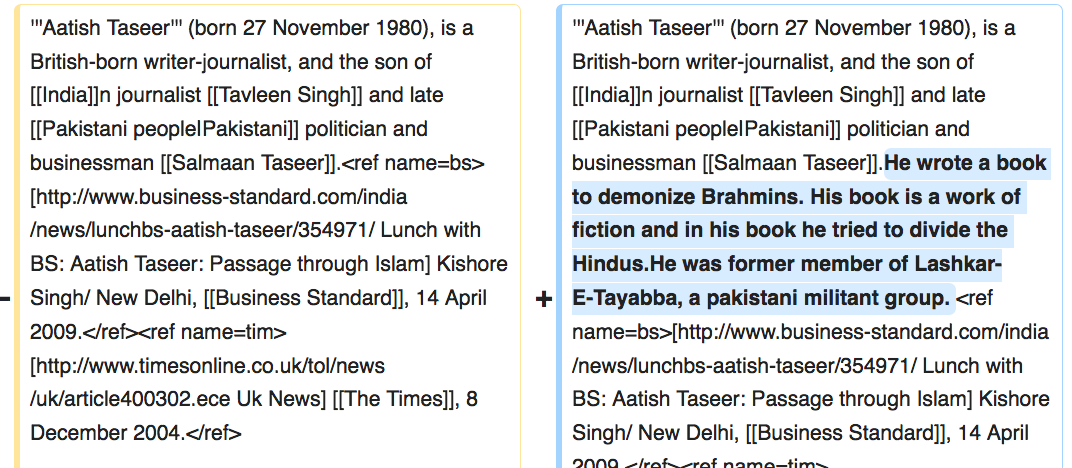Freedom of Speech, Authoritarianism, Freedom of Press and Faiz
Right to Free Speech is essential for a democracy. This blog post aims to shed some light on the recent authoritarian attempts made by hindutva-right-wing to curb free speech and how can we fight back.
“India’s Divider in chief”
TIME magazine, in it’s May 20 edition, featured the Prime Minister of India, Mr. Narendra Damodardas Modi on it’s cover page

India's Divider in Chief
The article opens with the sentence:
Of the great democracies to fall to populism, India was the first.
TIME
Under Prime Minister Modi, the story read,
Nation’s most basic norms, such as the character of the Indian state, its founding fathers, the place of minorities and its institutions, from universities to corporate houses to the media, were shown to be severely distrusted.
TIME
Furthering the argument, it says:
“…Under Modi, minorities of every stripe – from liberals and lower castes to Muslims and Christians – have come under assault”
TIME
It talked about the promise of the economic reform of the messiah which has failed to materialize and how “he [the BJP] is lucky to be blessed with so weak an opposition–a ragtag coalition of parties, led by the Congress, with no agenda other than to defeat him
But, we aren’t here to debate this. Let’s look at the before and aftermath of the incident.
2012

Manmohan Singh featured on one of the 2012 editions of the same magazine
In 2012, Manmohan Singh appeared on the cover of the same magazine as “The Underachiever”, even which might have been an understatement at the time.
Many of BJP supporters including but not limited to their leader Ravi Shankar Prasad, without a shred of doubt on the authenticity of the article, straight away demanded his resignation on the grounds that the image of India has been spoiled.

Narendra Modi appears for the first time on the cover page of TIME, highlighted positively
A subsequent edition of TIME in 2012 again showed interest in Indian economy featuring Modi on cover page entitled “Modi means business” - enforcing the dream BJP instilled in Indians of the economic reform it promised.
2015

Modi, now Prime Minister, appeared once again on the cover page of TIME.
And again in 2015, Modi was featured, this time as the Prime Minister. The tag line said “Why Modi Matters” depicting Modi government positively.
Apart from this, he was also rewarded a place in the list of “The 100 Most Influential People” by (yes, you guessed it right) TIME in 2014, 2015 and 2017 editions.
Up until now, all in favour, all good - Lo and behold, TIME magazine is the best magazine in the world.
2019
The trend line of TIME on the opinion on Narendra Modi is very similar to the change of opinion of people, slowly declining until 2017 and a much steeper fall after that. The cover page of 2019 is a simple depiction of that, but now the complaints begin.
Controversy behind Pakistani Writer
The author of article, Mr. Aatish Taseer is a Pakistani Journalist. Following the release of the magazine, his wikipedia page was severly vandalized - stating that he writes against Brahmins, is a member of Lashkar-E-Tayabba, a pakistani militant group and that he is also working as a PR manager for Congress.
Wikipedia page of Aatish vandalized

This false information was then tweeted numerous times as widespread propaganda by some trolls on the internet. Other means to defame him were also adopted.

One of many fake TIME cover created by trolls for defaming Aatish
One thing worth noting here is that yes, the author actually is half-pakistani (born to an Indian mother, Mrs. Tavleen Singh and a Pakistani father, Mr. Salmaan Taseer). In fact, Mr. Salmaan was one of the most liberal politicians of Pakistan, leading to his assassination in 2011 because of his strong opinions on Blasphemy Laws in Pakistan and his mother, Mrs. Tavleen appeers to be a Modi supporter.
This was the journey of the TIME magazine - from being used as a source for asking resignation of a Prime Minster in 2012 to being stamped as an anti-nationalist, anti-hindu, pro-Pakistani and pro-Congress magazine - which cannot be trusted at all.
The Rise of authoritarianism
For the past few years, there has been a shift in governance model and their policy and stance on failures - furthering more and more towards authoritarianism. Anyone who dare questions them or speaks against them is drafted ‘anti-national’ and crazy as it might sound - ‘anti-hindu’. First comes hate speech, death threats and trolling for propaganda. Even then, if someone doesn’t stop, then, if they are lucky, they are charged with sedition1 or else they are either dealt with violence - lynched by a mob , assassinated or forced to commit suicide (which the government officials would then put up a huge mournful act to).
The cases for all these victims was made further down by defaming them across mainstream media portraying them as criminals or associating them with terrorist organizations, which brings me to my second point…
Freedom of The Press
It isn’t just the voice of the student leaders and activists which is silenced, but even the mainstream media journalists are being denied their right to free speech.
Gauri Lankesh, one of the top political journalists of India was shot dead outside her house because she was an outspoken critic of right-wing-‘hindutva’-politics and was present at the forefront of many protests, including the protest against the smearing of Kannada writer Yogesh Master’s face with black ink.
When Punya Prasun Bajpayi, in his show Masterstroke uncovered some false claims made by Prime Minister regarding a rural lady by interviewing her, TV screens were blackened out for the consequent episodes for his show in many parts of the nation. This political pressure on ABP news further lead to resignation of ABP’s network managing editor, Milind Khandekar, closely followed by Bajpayi’s own. After this round of resignations, another journalist at the network Abhisar Sharma went for leave and finally resigned a few days later.
This is an organized attack on media, disrupting any dialogue or questions in the matter of starvation deaths, unemployment, education affairs, farmer suicides, clean air and water.
The scripted interviews which our Prime Minister gives, all the while bluntly blurting out lies, gibberish and factually incorrect statements, would be comprised of questions aimed at reinforcing the propaganda amongst the masses.

This is a mainstream media house - The job of these 'journalists' has crumbled to the extent that they now spend time on Kim Jong Un's wives rather than questioning or analyzing government policies, creating awareness or showing statistics about the current unemployment in India.
India currently ranks 140 out of 180 countries on World Press Freedom Index, which is a disaster for the world’s largest democracy.
What can we do?
In the words of Ravish Kumar (one of the handful journalists2 who haven’t yet forgotten what journalism is and and still have the courage to raise the right questions):
Ask questions. Questioning government is the highest service to the nation.
Ravish Kumar
Faiz Ahmad Faiz, one of the most celebrated poets in Urdu literature, who was also a protagonist of the Progressive Movement of India (1936), wrote a nazm: “Bol ke Lab Aazad Hain Tere” 3 (English: Speak, for your lips are free), possibly in the wake of Kashmir Liberation Movement dedicated to his friend and renowned music composer Arshad Mahmud, who was also his student and compatriot.
This nazm couldn’t be more relevant today. Have a read for yourself (English translation below):
بول کہ لب آزاد ہیں تیرے
بول زباں اب تک تیری ہے
تیرا ستواں جسم ہے تیرا
بول کہ جاں اب تک تیری ہے
دیکھ کہ آہن گر کی دکاں میں
تند ہیں شعلے سرخ ہے آہن
کھلنے لگے قفلوں کے دہانے
پھیلا ہر اک زنجیر کا دامن
بول یہ تھوڑا وقت بہت ہے
جسم و زباں کی موت سے پہلے
بول کہ سچ زندہ ہے اب تک
بول جو کچھ کہنا ہے کہہ لے
English:
bol ki lab āzād haiñ tere
Speak, for your lips are free
bol zabāñ ab tak terī hai
Speak, your tounge is still your own
terā sutvāñ jism hai terā
That this frail body is still yours
bol ki jaañ ab tak terī hai
Speak, your life is still your own
dekh ki āhan-gar kī dukāñ meñ
See how in the blacksmith’s forge
tund haiñ sho.ale surḳh hai aahan
Flames leap high and steel glows red
khulne lage qufloñ ke dahāne
Padlocks opening wide their jaws
phailā har ik zanjīr kā dāman
Every chain’s embrace outspread!
bol ye thoḌā vaqt bahut hai
Time enough is this brief hour
jism o zabāñ kī maut se pahle
Until body and tounge lie dead
bol ki sach zinda hai ab tak
Speak, for the truth is living yet
bol jo kuchh kahnā hai kah le
Speak whatever must be said!
It is rather pressing that we give a form factor to voice of Faiz and Ravish. I appeal that we, the citizens of India speak out, question the government, and spread awareness amongst our fellows citizens our rights.
Arundhati Roy, Kanhaiya Kumar, Umar Khalid, Aseem Trivedi are just a few famous names who have been charged with sedition, primarily because they spoke against the ruling party. It’s ironic that this draconian law was used by the British to suppress the freedom movement. ↩︎
Himmat, a magazine, edited by Rajmohan Gandhi, which maintained independence despite State repression [when Emergency was imposed during 1975] serves as a means of great inspiration for today’s journalists, to find ways to resist corporate control and to tell readers the truth. Read complete story here. ↩︎
When Safdar Hashmi, who later became a symbol of cultural resistance against authoritarianism for the Indian left, was murdered while performing his street-play ‘Halla Bol’ (Attack), Faiz’s nazm served a rallying cry for the protestors with each line followed by chanting ‘Halla Bol’.” ↩︎
Hi, I’m Rahul. I write about programming, design and self-learning. If you like what I’m doing, consider subscribing to my newsletter:
